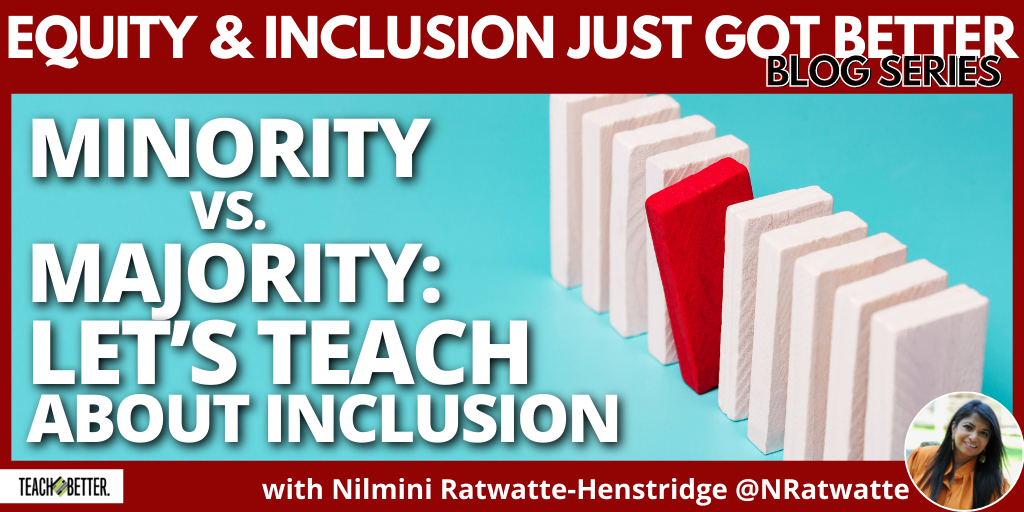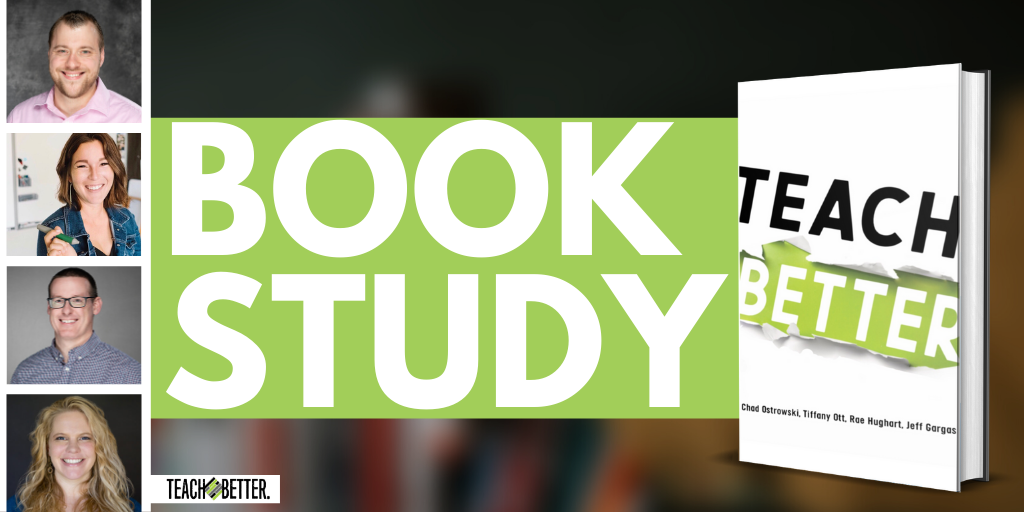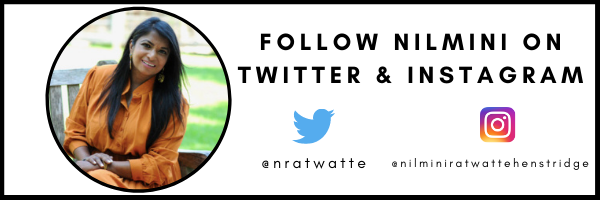TL;DR:
- Challenge yourself this December to celebrate all the cultural celebrations.
- Understand intersecting identities.
- Reflect on the concept of minority vs. majority and power in our schools.
Equity and Inclusion Just Got Better Blog Reflection Questions:
- How do you identify yourself? (Consider: Race, gender, class in society, religious affiliations, roles you hold personally and professionally)
- The way you identify yourself: Do you hold power in your community or have a voice to create positive changes?
- Why does race matter in your opinion?
Do Numbers Matter?
The thing with words is that it doesn’t matter if we are in a minority or majority—it’s about who holds the power. To make systemic changes, we have to include all individuals in our groups and educate those who hold positions of power.
If those in a minority group do not hold a position of power, they do not get to influence others, create a positive impact, or embrace opening doors for others so that they can change the world. Positive growth and mindset changes are important to consider.
The importance of intersecting identities is to consider that most of society will try to place you in a box, but some of us do not fit into one category. We are complex humans that have multiple, intersecting identities. Click To TweetAttributes That Make Our Identity
Here are some questions that will help you understand the intersections of identity. Remember that you will identify yourself, but others will perceive and assign identities to you as well. This is important to reflect upon. Sometimes how you identify and how others label you are not going to always align.
Reflection
Consider visible identity traits such as skin colour and also invisible identity traits, such as religious beliefs, as you think about the answers to the following key questions.
- What race do you consider yourself?
- Which religion do you follow?
- How would you label your gender?
- What roles do you hold close to your heart?
- Do you have a visible or invisible disability?
- What does your age have to do with societal values placed upon you?
- What class do you think you are—working class, upper class, an affluent class, other?
Now think about how others perceive your identity…
Do they match up to your answers?
When you consider the answers, think about which answers go with societal norms and which answers challenge them.
The roles you hold have societal values and expectations. They influence the impact you can make towards propelling positivity, compassion, and making a better global community.
Intersecting Identities
The importance of intersecting identities is to consider that most of society will try to place you in a box, but some of us do not fit into one category. We are complex humans that have multiple, intersecting identities and that is the new multi-ethnic, diverse community we live in today.
Race is a socially constructed concept. We are human and belong to the human race. I think this is something that we have in common as individuals and something that can bring us together in peace and harmony, lifting ourselves up.
However, it is important to understand the impact of colonization and the point of view that is engraved in our history of distinguishing skin colour as a way of understanding. We have given the lighter skin tones more power and the darker skin tone less power. As much as we can’t undo the past actions of our ancestors, we have the ability to learn from them, to understand the importance of working together and collaborating as a global community.
As we consider our identities, let’s take a moment and reflect on the learning. The best example of how this concept of majority vs. minority comes into play in all of our schools, districts, and communities is through celebrations.
[scroll down to keep reading]This December: Celebrations from Diverse Cultures
Think about the celebrations going on this month. I challenge you to embrace all celebrations in our world as a teacher, no matter how you identify yourself. Christmas is the gentle reminder of us being colonized and how one religion held power (note I say held, not hold) and was considered important.
I ask you to celebrate all world celebrations as a starting point. You will expose yourself and your students to so much amazing diversity.
I love getting my Grade 2 students to learn about a cultural celebration by researching it. I empower them to use their voices to advocate for that culture and celebration while teaching us. They understand that we have to learn about others, their differences, and be inclusive in our classroom.
I wish you a Merry Christmas, if you celebrate it, and a very happy holiday season. Season’s greetings to your family this holiday season.
Yours in Education,
Nilmini
About Nilmini Ratwatte-Henstridge
Nilmini Ratwatte-Henstridge teaches in Brampton, Ontario, Canada. She was born in Sri Lanka and immigrated to Canada with her family. As an Elementary School Teacher who is passionate about Equity, Social Justice, and Human Rights in education, she enjoys teaching the younger generation to be global-minded citizens.
Discovering the world by connecting with others is an opportunity that we have today in our society today and she loves meeting new people! She is always learning while traveling to understand the inter-connectedness of this beautiful earth we live in! Nilmini LOVES cooking great meals, watching movies, and the latest fashion trends! Family and friends are close to her heart as she looks forward to balancing social media and navigating professional learning communities in education to network globally this year!




